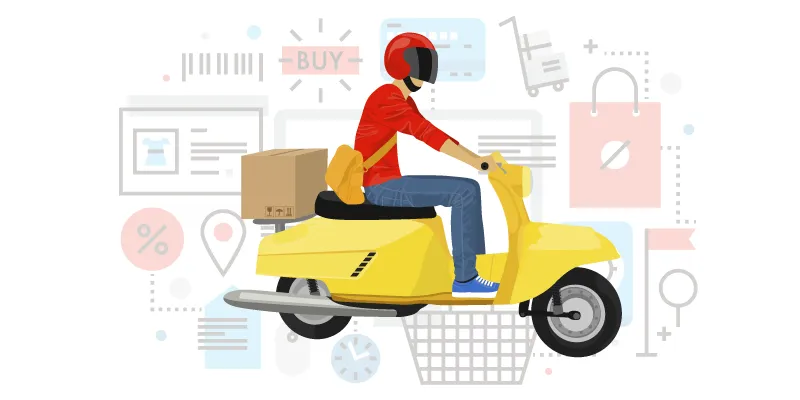How third-party logistics is emerging as a driver of e-commerce growth
Logistics, a term once used to define procurement, maintenance, and transportation of military equipment and personnel, has become the buzzword for business organisations across the globe owing to the vast advantage that it offers to every business entity. Logistics plays an important role in creating visibility in its supply chain and is directly related to the business organisation’s service delivery, efficiency, and overall consumer satisfaction.
However, effective logistics operations are bound by complex and exhaustive processes that require a significant amount of expertise and an expansive network of subsystems. This has been the key reason for the eventual advent of third-party logistics in the logistics industry. Addressing the rapidly evolving market of e-commerce in the country, third-party logistics is emerging as the primary driver for Indian e-commerce.

Image Credit: Shutterstock
As online retailers already have to deal with an array of high-involvement technological and operational aspects, it is financially more feasible for them to outsource the complicated and capital-intensive logistics requirements to third-party logistics companies in order to increase their efficiency by tapping into the superior service delivery of 3PL service providers.
Many new logistics companies with their focus on e-commerce shipments have created a new business segment known as ‘e-Commerce logistics service provider’ to specifically cater to the industry. This segment enables the following advantages for India’s e-commerce sector:
- Storage, maintenance and delivery: Third-party logistics companies provide a complete package for online retailers. All the major online companies like Amazon, Flipkart, and Snapdeal have moved towards a marketplace model where they do not keep any inventory. A third-party logistics company thus procures the product directly from the vendor and tries to deliver it within the least possible time. The 3PL service provider, many a time, is also assigned the task of packaging the product before its delivery. During the entire journey of the product from retailer to end-consumer, the 3PL service provider is responsible for storage, maintenance, and time-bound delivery of the product.
- Risk mitigation: The service-level agreement between a third-party logistics company and the online retailer enables the latter to transfer the responsibility of various hazards involved in logistics operations such as loss, damage, and transportation delays to the respective 3PL service provider. This mitigates the risks on the retailer’s end, is more cost-effective, and promotes smooth functioning of the business.
- Offline retailers moving to online channels: The inventory-led model deprived many suppliers primarily based in tier 1 and 2 cities of the benefits of these online channels. The reason for the same was inaccessibility to the e-commerce warehouses and infeasible transportation of the product to the same from the supplier’s end. This situation adversely affected both the e-commerce platforms as well as suppliers equally. With the marketplace model of e-commerce platforms in place, 3PL companies have paved the way for various retailers and suppliers in these geographical regions to actively participate in the Indian e-commerce growth story. It has also enabled various e-commerce marketplaces to expand their product offerings along with their retailer base.
- Multi-mode transportation model: With revolutionary concepts such as express delivery and one-day delivery, sometimes goods are required to be shipped via multiple modes of transport, including airways and railways. Moreover, tracking the product also becomes essential in this specific case as delay in delivery results in a direct violation of the service-Level agreement, thus making the respective player liable for reparation. The multi-mode transportation model of 3PL companies and product tracking through RFIDs at various checkpoints eases the hectic affair for retailers and enhances the level of consumer satisfaction they are able to offer.
- Cash-handling capabilities: India is moving towards digitalisation and online monetary transactions, but cash-on-delivery is still the most preferred mode of payment, especially in non-metropolitan cities. To serve the customers who are not acquainted with online payments or display a sense of trust deficit towards the payment mechanism, logistics companies also act as intermediaries between customers and retailers.
- Creating business opportunities: Apart from all the above mentioned aspects, one of the most important factors is that the third-party logistics service providers are also helping to create various online business opportunities. These opportunities exist across the broad spectrum of the digital infrastructure of the country. On the one hand, 3PL companies promote the growth of various online marketplaces, including retailers located in far-flung areas. On the other, they also boost freight aggregation and increase the scope for various transportation networks. The 3PL service providers are emerging as a binding element in the Indian digital market and are moreover enabling maximum people to connect from the Government of India’s ‘Digital India’ initiative.
(Disclaimer: The views and opinions expressed in this article are those of the author and do not necessarily reflect the views of YourStory.)







